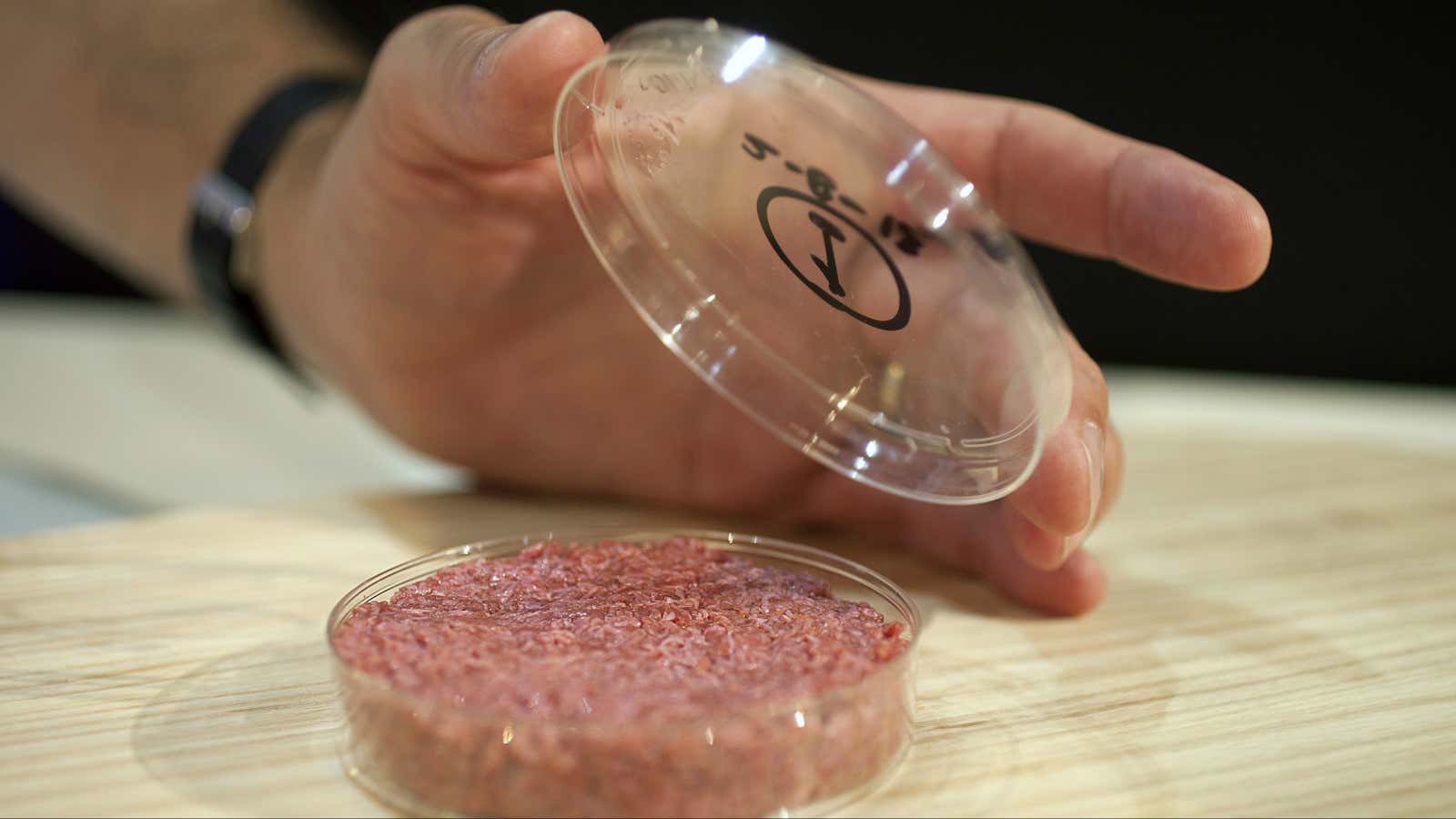Bruce Friedrich is about to up the ante in the effort to get more people eating plant-based and cell-cultured meat. With a staff that will soon exceed 30, Friedrich’s DC-based firm is expanding its attention from the United States to the entire world.
Formed only a year ago, the Good Food Institute (GFI) staff has already grown from two to 15 people, with 17 more positions to fill. The firm has rapidly made a name for itself by offering strategic support to and lobbying on behalf of meat alternative companies. Friedrich and his staff are now putting down the tracks that will enable the success of the many new “sustainable” and “environmentally-friendly” food industry entrants that are capturing the attention and imagination of consumers. In the US, GFI is currently working on a bipartisan measure in congress to reform long-established food system programs that favor traditional food groups.
Now it’s thinking global: one of GFI’s open positions is for a director of international engagement, which will lead GFI’s effort to transform agriculture on the global level. That person will oversee the herculean task of working with foreign governments, venture capitalists, entrepreneurs, and activists to build steam behind the meat alternative movement. The group is already beginning that work in Brazil, China, and beyond.
Making a plant-based Brazil
In March, GFI hired former Whirlpool executive Gustavo Guadagnini as the managing director of its Brazil branch. Guadagnini, who is based in São Paulo, had approached GFI independently with an action plan for getting more plant-based foods into the marketplace.
GFI thinks Brazil offers an opportunity to strike while the iron is hot, thanks to a recent scandal at Brazil-based JBS, the world’s largest meat packer. The company in March suspended production at 10 of its 36 beef facilities in Brazil as part of an anti-corruption investigation. JBS and other meat packers had allegedly paid bribes to government inspectors in exchange for relaxing food safety regulations (though JBS has denied the allegations).
Noticing that Brazilian consumers are leery of the meat industry and also interested in plant-based alternatives, one of the country’s leading business magazines, Exame, this month published a story (Portugese) positing that the meat of the future may just be “100% meat and 0% animal.”
Better quality plant-based meat is much needed in Brazil, Friedrich says, as the products currently offered are expensive and mostly tastes bad. “They’re selling canned, plant-based meat that reminds me of the plant-based meat I was eating in the 1980s, and it’s the equivalent of $6 a can.”
Guadagnini’s first step will be to forge relationships with chain restaurants and food service companies in Brazil to help meet get more plant-based products on the market.
China steps to the plate
With the US government signaling a muted role in the global fight against climate change, leaders of the world’s second-largest economy see an opportunity to pick up a mantle. By working as a conduit between the Chinese government and China-based entrepreneurs, GFI hopes to lay the groundwork that will lead to a clean-meat renaissance in China.
“Ideally we will find people in the Chinese government, or positions of power in the Chinese entrepreneurship community, that light a spark that lights a flame that starts a fire,” Friedrich says. “The Chinese government has the capacity to devote billions of dollars to this work.”
Friedrich’s group has plans to hire at least two people to prioritize the effort in China to promote both plant-based meat and cell-cultured meat alternatives. It’s a timely campaign, as it comes on the heels of the Chinese government’s message to its 1.3 billion citizens to eat less meat.
The effort elsewhere
Cell-cultured meat—the stuff grown in labs—is currently only offered on a very limited basis in America, but as the industry expands to meet demand, Friedrich says he expects markets in the US and in other countries to perk up. As these new cell-cultured products begin to show up in other countries, they will inevitably raise regulatory questions.
In the US established food industry groups have fought against the labelling and marketing of high-tech or new-entry food products. Is cell cultured milk really milk? Is chicken grown in a vat really chicken? Expecting future challenges and hurdles, GFI is partnering with attorneys in Canada, the UK, and Taiwan to figure out what to expect.
“Clean meat will be met with swift regulatory approval, but we want to lay that groundwork,” Friedrich says.
